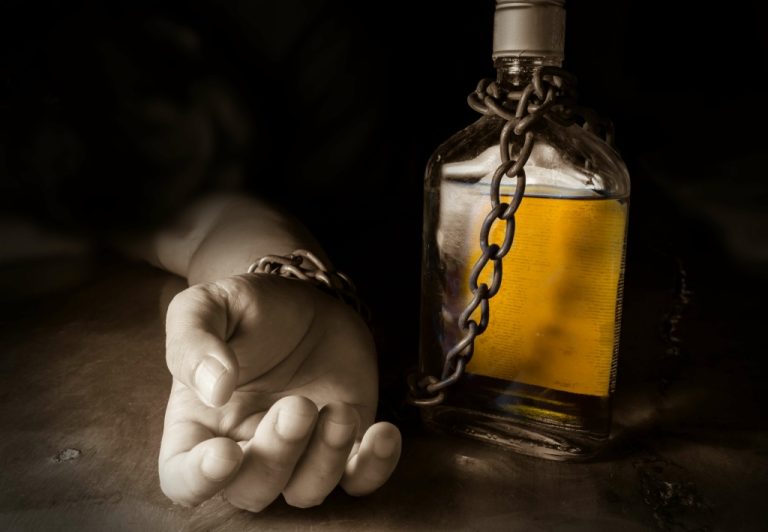Eudaimonia even provides tailored care based on gender and orientation. We also include supervised, short-term housing to provide support for newly sober individuals. Sobriety is not just about quitting substances—it’s about rediscovering your purpose and living a life that aligns with your values. One of the biggest fears individuals face is not knowing what life will look like without substances. But by focusing on your “why”—whether it’s for your health, family, or personal goals—you can stay motivated to continue on your sober path. Eudaimonia Recovery Homes offers a structured sober living environment that helps you manage your recovery step by step.
Addiction Info
Take a moment to reflect on your reasons for fear of being sober choosing sobriety. There are many resources available to help you overcome your fears and live a life in recovery. These resources can include therapy, support groups, and 12-step programs.
Mental Health Treatment
- Is silly to be afraid of being sober just live it and enjoy it.
- Even though you know the health complications drug use has brought to you, it’s not uncommon to fear life without it.
- The NA Steps program is specifically designed to replace this belief system with a mindset that doesn’t need drugs to cope with daily life.
- You will have good days, hopeless days, and every other sort of in-between day on this journey.
It’s not uncommon, then, to be afraid of what life will be like without these substances to help you to manage stress, family members and other challenges. There’s always the fear of a ride malfunction on a roller coaster. Your brain knows this, and, as a result, it becomes afraid. You may again seek out the people and situations that support your alcohol use.
Recovery Support
It’s important to verify coverage details with your specific provider. Here’s how to know when you need medical help for alcohol detox, plus tips to make sure you’re detoxing as safely and effectively as possible. Addiction thrives in avoidance and isolation, feeding off the fears that keep you trapped in harmful cycles. It’s only by pushing through these fears that real growth happens.
- ” But the problem runs deeper than just simply being able to quit and stay sober.
- Practice and plan your responses so that you feel confident and prepared in these environments.
- Symptoms can last from a few days to several weeks for some substances, with cravings and psychological symptoms potentially lasting longer.
- By developing effective coping strategies for triggers, you’re building a strong foundation for long-term sobriety.
“I Do Not Want to Feel the Pain”

You can live a life without drugs or alcohol, and you owe it to yourself to try. For the time being, try to envision a life full of promise, where there alcohol rehab are no limits to what you can achieve. Find reasons to laugh and smile through gratitude each hour of your day.
The money you save by not buying drugs or alcohol can quickly add up to fund a travel adventure or make a down payment on a house. Change can be painful and scary and many people truly believe they will dislike sobriety. I thought being sober was lame and I couldn’t understand why anyone would want to do it. I was convinced I would hate it and that I would be miserable. That was before I knew anything about being sober. I think many people make this assumption before they even try sobriety.
- Redefining fun is an essential and rewarding part of the recovery process.
- SHAFA HOME, offers luxury, residential rehab for all forms of addiction.
- ” The unknown is intimidating, and you are asked to face that uncertainty head-on in recovery.
- At The Ranch at Dove Tree, a key component of our process is to give you the tools you need to move forward.
Substances often serve as a way to numb emotional pain, whether it’s past trauma, anxiety, depression, or everyday stress. The fear of confronting these feelings without the crutch of drugs or alcohol can be overwhelming. However, recovery provides the tools and support necessary to face and heal from these emotional wounds. Therapy, support groups, and other resources can help individuals process their emotions in a healthy way, ultimately leading to greater emotional resilience and well-being. Facing the fear of sobriety can be daunting, but you’re not alone. Many individuals on the road to recovery experience this fear.
For some, the fear of fully feeling emotions and navigating them without substances is overwhelming. Facing your fears can play a pivotal role in your recovery story, since fear often becomes a barrier to healing and transformation. Dr. Mala, is the Chief Clinical Officer at Recovery.com, where she develops impartial and informative resources for people seeking addiction and mental health treatment.

We are a non-network provider for TriCare West.

You will be making new friends in treatment and recovery, as well as through your support group meetings and new activities you will now start to enjoy. Common fears in recovery can include fear of facing everything, fear of sobriety, fear of relapse, and more. However, these fears can be overcome with the help of a support system and professional treatment. Many people are afraid to get sober simply because they think they will hate it. When your current lifestyle revolves around drinking or drugging, it is not hard to see why the thought of living a sober life is hard to grasp. But what most people don’t realise, is that there are many ways in which life gets infinitely better when you get sober.
Recognizing these fears as normal parts of the recovery process can help individuals approach them with compassion and seek appropriate support. Mindfulness-based interventions have shown promising results in reducing anxiety and preventing relapse in recovery. Replacing substance use with healthy activities is a crucial part of recovery.
Keep your profile updated with photos, videos, services, and contact details to connect with the right people. I failed more times than I can count before I finally got it right, and I assure you there is nothing special about me that you can’t find within yourself. You don’t have to produce some hidden, superhuman strength to be successful at sobriety. But you do need patience, empathy for yourself, and a firm commitment to meeting your goal. You make it up to everyone you ever hurt by never being that person again. Don’t expect to accomplish any big self-realizations in the beginning.




